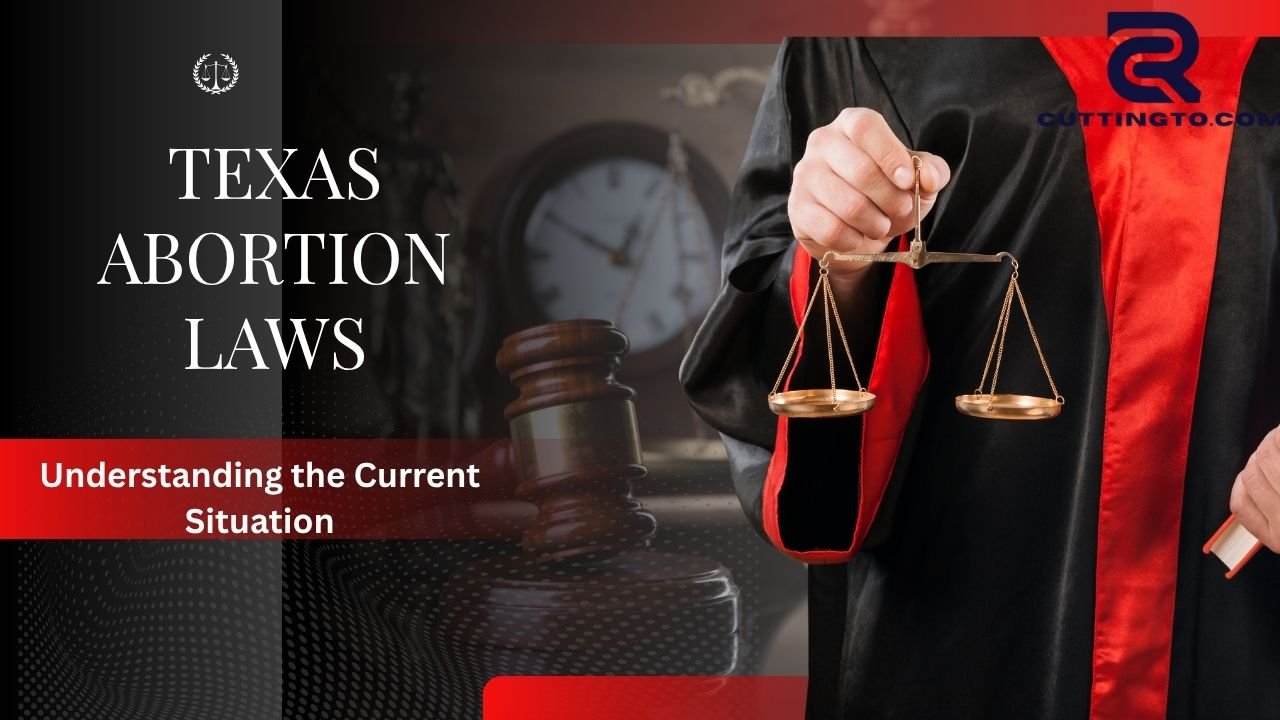Texas Abortion Laws: You are about to explore a sensitive topic: the legal status of abortion in Texas. Knowing about texas abortion laws is key for those looking into reproductive rights.
Recent changes have greatly affected reproductive health in Texas. As you delve into this, think about how these laws impact reproductive rights and the abortion legal status in Texas.
By looking at the current situation, you’ll understand the complexities of these laws. You’ll see how they affect individuals and communities.

The Current Legal Status of Abortion in Texas
Right now, the laws on abortion in Texas are quite complex. They have changed a lot, affecting people who need abortion services.
The state’s laws restrict abortion after a certain gestational age. There are some exceptions. It’s important for people to know these laws to make good choices about their health.
| Legal Aspect | Description | Exceptions |
|---|---|---|
| Gestational Age Limit | Abortion is generally restricted after a certain gestational age. | Medical emergencies, fetal anomalies. |
| Notification Requirements | Parents or guardians must be notified for minors seeking abortion. | Judicial bypass available. |
| Medication Abortion | Regulations surrounding medication abortion are in place. | Specific protocols must be followed. |
People can get help from local groups. These organizations offer advice and help finding abortion services in Texas.
For those looking for abortion, knowing the laws and exceptions is crucial. The rules on abortion in Texas are detailed. It’s important to stay updated to get the care you need.
Is It Illegal for Abortion in Texas? The Legal Framework Explained
To know if abortion is illegal in Texas, we must look closely at the state’s laws. The rules about abortion in Texas are complex. They have changed over time.
The main law on abortion in Texas is the Texas Heartbeat Act. It stops abortions when a heartbeat is found, usually around six weeks. This law is part of a bigger set of rules that include laws, court decisions, and the state’s constitution.
To understand Texas abortion laws, we need to look at the laws’ foundation. The table below shows important parts of this foundation:
| Law/Regulation | Description | Impact on Abortion Legality |
|---|---|---|
| Texas Heartbeat Act | Prohibits abortions after fetal heartbeat detection | Significantly restricts abortion access |
| Pre-Roe v. Wade Laws | Historic laws that criminalized abortion | Reinstated in effect after the overturning of Roe v. Wade |
| Judicial Decisions | Court rulings interpreting abortion laws | Influence the application and enforcement of abortion laws |
When dealing with Texas abortion laws, it’s important to remember they can change. This includes new laws and court decisions. The question of is it illegal for abortion in Texas depends on these changes and how they affect abortion services.
In summary, abortion laws in Texas are made up of many parts. These include laws, court decisions, and the state’s constitution. Knowing these parts helps us understand the current laws on abortion in Texas.
Historical Context: How Texas Abortion Laws Have Evolved
Abortion laws in Texas have changed a lot since the early 1900s. At first, abortion was very limited. Laws from the 1800s only allowed it if the mother’s life was in danger.
Significant milestones in Texas abortion laws include the landmark Supreme Court case Roe v. Wade in 1973. This case made abortion legal across the country. After that, Texas passed laws that made it harder to get an abortion.
| Year | Legislation/ Event | Impact on Abortion Laws |
|---|---|---|
| 1854 | Texas enacts its first abortion ban | Prohibited abortion except to save the mother’s life |
| 1973 | Roe v. Wade | Legalized abortion nationwide |
| 2013 | Texas passes Senate Bill 5 | Imposed stricter regulations on abortion clinics |
Knowing about these changes helps us understand abortion laws in Texas today. It shows how old laws have influenced what we see now.
Medical and Legal Exceptions to Texas Abortion Bans
Knowing the medical and legal exceptions to Texas abortion bans can provide clarity in difficult situations. Texas has strict abortion laws. But, there are specific situations where exceptions are made.
Rape and Incest Cases
In cases of rape and incest, Texas law allows for an exception to its abortion ban. But, the process is complex. To qualify, you need to have proof of the rape or incest, like a police report.
Rape and incest exceptions highlight the legal and medical complexities surrounding abortion laws.
Fetal Abnormalities
Fetal abnormalities are another situation where exceptions might apply. If a fetus has significant abnormalities, this can affect the decision under Texas law.
| Exception Circumstance | Legal Requirement | Medical Consideration |
|---|---|---|
| Rape and Incest | Documentation through police report | Medical evaluation to confirm pregnancy |
| Fetal Abnormalities | Diagnosis confirmation by medical professionals | Assessment of fetal viability and abnormalities |
Understanding these exceptions is key to navigating the complex legal and medical landscape of abortion in Texas.
How Texas Abortion Laws Impact Your Reproductive Rights
It’s important to know how Texas abortion laws affect your reproductive health choices. The laws in Texas have changed a lot, affecting your reproductive rights. These changes impact your access to abortion services and reproductive healthcare overall.
The laws in Texas can limit your reproductive healthcare options. For example, some laws require waiting periods or restrict insurance for abortion procedures. Knowing these restrictions is key to understanding reproductive healthcare in Texas.
Also, the legal rules around abortion in Texas affect your reproductive freedom. By understanding the current laws and their history, you can make better choices about your reproductive health.
It’s crucial to stay updated on Texas abortion laws and their impact on your rights. There are resources and support available to help you understand and exercise your rights.
Resources and Support for Texas Residents
Many resources and support systems are available for those affected by Texas abortion laws. Finding your way through these laws can be tough. But, with the right help, you can make smart choices about your reproductive health.
Looking for help or guidance? Many organizations offer assistance. You can find health clinics, legal aid services, and counseling support groups. It’s important to remember, you’re not alone. There are people and groups ready to support you.

| Organization | Service | Contact |
|---|---|---|
| Texas Health and Human Services | Health Services | www.texashealth.org |
| Texas Legal Services | Legal Aid | www.texaslegal.org |
| Texas Reproductive Rights Coalition | Counseling and Support | www.texasreproductiverights.org |
These resources are key for Texas residents dealing with abortion laws. They offer financial, legal, and emotional support during tough times.
Knowing your options and the support out there can empower you. It helps you make the best choices for your health and well-being. Remember, you have the right to seek help and information.
See Also: Is It Illegal to Sleep in Your Car in California?
Conclusion: Texas Abortion Laws
It’s important to know about Texas abortion laws to understand reproductive healthcare here. The laws are complex, with certain exceptions and rules. This knowledge helps you make smart choices about your health.
The laws in Texas have a big impact on your reproductive rights. Knowing the rules and exceptions can help you get the care you need. There are resources and support for people in Texas to help with these issues.
To navigate reproductive healthcare in Texas well, stay up to date on the laws. Understanding these laws helps you fight for your reproductive rights. It also lets you make informed decisions about your health.
